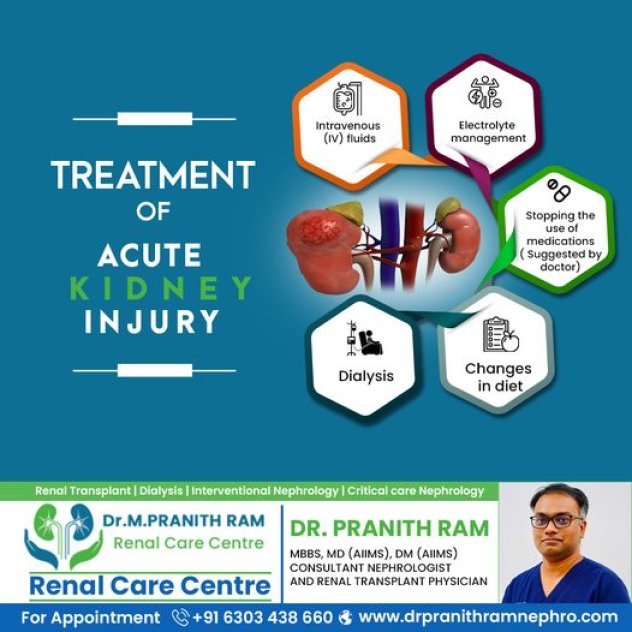
Acute kidney injury treatment
Secunderabad, TG
Description
The treatment for acute kidney injury (AKI) focuses on addressing the underlying cause, managing complications, and supporting kidney function. Here are some common approaches to the treatment of AKI:
Treating the underlying cause: Identifying and addressing the cause of AKI is crucial for treatment. It may involve managing conditions such as dehydration, low blood volume, urinary obstructions, kidney infections, medication toxicity, or ischemia (lack of blood flow to the kidneys). Treating the underlying cause can help improve kidney function.
Fluid and electrolyte balance: Maintaining proper fluid and electrolyte balance is vital in AKI management. Intravenous fluids may be administered to ensure adequate hydration, correct imbalances, and support kidney function. Medications may also be used to manage electrolyte abnormalities, such as potassium or sodium imbalances.
Medications: Depending on the cause and complications of AKI, various medications may be prescribed. For example, diuretics can help increase urine output and remove excess fluid from the body. Medications to control blood pressure, manage infections, or address specific conditions may also be necessary.
Dialysis: In severe cases where kidney function is significantly impaired and not responding to other treatments, dialysis may be required. Dialysis helps filter waste products, remove excess fluid, and restore electrolyte balance when the kidneys cannot perform these functions adequately. Hemodialysis and peritoneal dialysis are the two primary types of dialysis used for AKI.
Supportive care: Patients with AKI may require supportive care to manage symptoms and prevent complications. This may include nutritional support, monitoring and managing blood pressure, addressing anemia or bleeding disorders, and close monitoring of fluid status and vital signs.
Avoiding nephrotoxic substances: It's important to identify and avoid any substances that may further damage the kidneys. This includes certain medications, contrast agents used in medical imaging procedures, and toxins from drugs or chemicals.
The treatment approach for AKI may vary depending on individual factors, including the cause, severity, and overall health of the patient. It's crucial to consult with a healthcare professional who can assess the specific situation and provide appropriate treatment recommendations.
Extras
Reviews
To write a review, you must login first.




